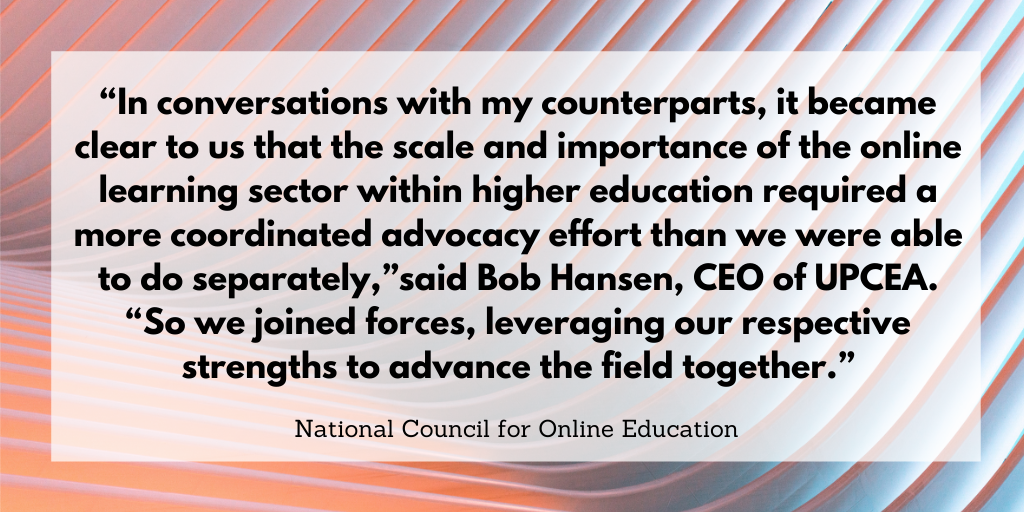The higher education landscape is arguably the toughest it has been in a generation, marked by economic instability, demographic decline, and the constant imperative for greater efficiency. The 2026 Landscape of Higher Education Report confirms this volatile reality: beginning in 2026, many institutions will face a sustained decline in traditional-aged undergraduates. Enrollment growth is now…
There’s a moment from my college days I remember more clearly than any midterm I ever took. I had stepped away from my bachelor’s degree at Penn State because I wanted to live a little. I’d grown up in the same town that I went to college and I just needed an extended reprieve, something…
As we look at Artificial Intelligence in teaching and learning, we must look beyond facts, figures and formulas to ensure that the skill of perceiving and managing feelings, emotions and personalization are engaged in the process. Looking back on my lifelong history of learning experiences, the ones that I would rank as most effective and…
Agentic AI is no longer merely an interactive tool we talk to; it is a colleague that acts for us. In a very active and highly competitive environment, AI has grown at breakneck speed. As with so many technologies, business and industry have moved far faster than academe to embrace the cost savings, capability expanding…
Encourage your students to complete the Census
We are excited to announce that we are partnering with the U.S. Census Bureau to support the 2020 Census. As a partner, we will be working to make sure our community is accurately represented in the upcoming decennial count. The census counts everyone in the United States. Census results are the basis for congressional…
Leading Digital Learning Organizations Partner to Establish National Council for Online Education
For Immediate Release OLC, QM, UPCEA, WCET join forces to advance online and digital postsecondary education WASHINGTON, April 1, 2020 – Four leading organizations in higher education and digital learning today announced a partnership to establish the National Council for Online Education (NCOE), creating a formidable voice for online and digital education within…
Keeping you connected
While you are leading campus responses to the pandemic, our goal is to help you stay connected to the larger PCO community. This community, this professional association, is one of your greatest assets during this challenging time. Now more than ever we are learning from each other. Helping each other solve problems. Supporting each other. …
Policy Matters | US Dept of Education Issues Guidance for Higher Education + Congressional Action on COVID-19; UPCEA Advocacy and Resources (March 2020)
Much congressional action has been taken since the COVID-19 crisis began. A bill that provides tax relief for businesses to support paid sick leave and free coronavirus testing; one authorizing $8.3 billion to help government agencies respond to the virus; and a bill protecting GI Bill housing benefits for online veteran students, are all now…
The tagline for Convergence, Credential Innovation in Higher Education, raises two important questions: First, what kind of credentials are we talking about? Is the scope of credentials unlimited, blue sky, or confined to incremental changes on the margins of the status quo? And second, who is leading that innovation, and what do they need to…
We are pleased to share the foreword by UPCEA CEO Bob Hansen from the newly released Chief Online Learning Officers’ Guidebook: A Framework for Strategy and Practice in Higher Education. The guidebook, now available from Routledge in paperback, hardback, and eBook formats, provides a comprehensive framework for today’s online learning leaders. Learn more and purchase…
The student journey has changed — and expectations are rising. Students today are moving faster, arriving more informed, and expecting experiences that feel responsive and personalized. Research behaviors are shifting, and AI is increasingly shaping how prospective students discover and evaluate programs. The path to enrollment is becoming more complex and more personalized, and students…
Introduction Higher education is at a crossroads, marked by declining public trust, diminishing enrollments, substantial budget cuts, and increased scrutiny on post-college outcomes. Recent research from UPCEA underscores growing skepticism about the value of traditional degrees, driving institutions and learners alike to explore innovative educational pathways and revenue models (UPCEA, 2025). To address these challenges…

